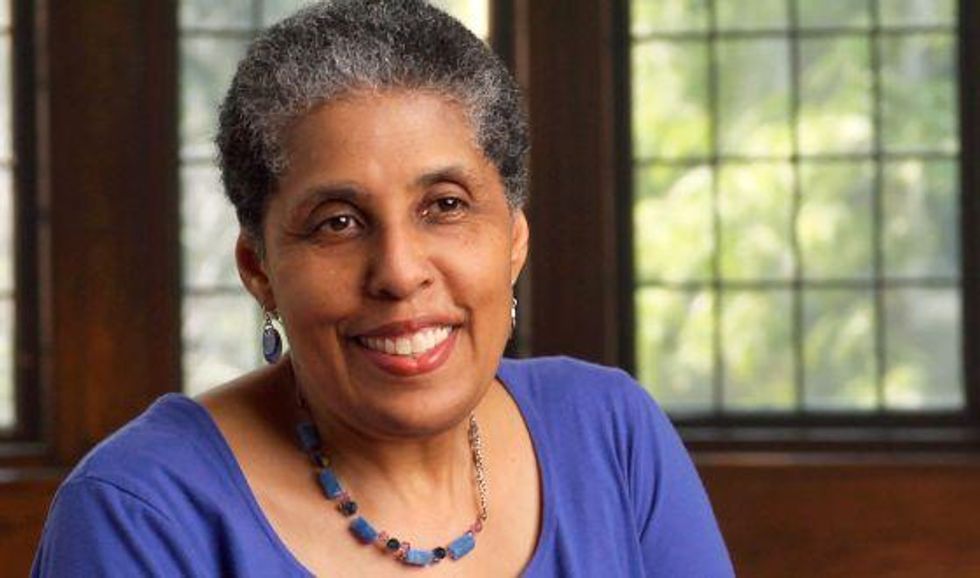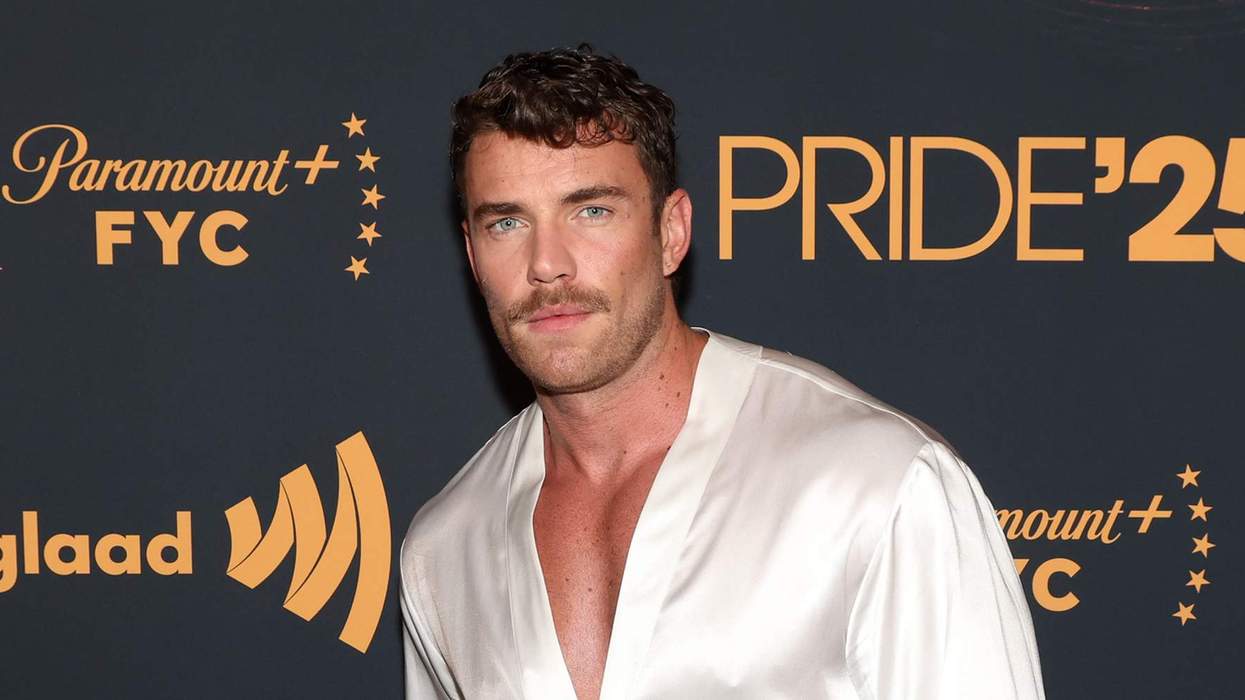When Dale Hansen, the Peabody Award-winning sportscaster, Texan, and host of the WFAA show that bears his name, Dale Hansen Unplugged, ended his recent show by offering a pithy commentary in support of the gay college football star and potential NFL draft candidate Michael Sam, he garnered national media attention. Hansen was deemed the "Hero Reporter," after he waxed eloquently, and a bit moralistically, on why NFL officials need to accept Sam. His commentary even earned him a spot on the nationally televised Ellen DeGeneres Show. And, yet, one critically important aspect of the widely viewed video segment has received little to no attention.
Hansen decided to close with this quote: "It is not our differences that divide us. It is our inability to recognize, accept, and celebrate those differences." But these are the commanding words of Audre Lorde, the deceased, celebrated, self-described "black, lesbian, warrior, poet, mother," and, in fact, the title of Hansen's segment, "Celebrating Differences," is inspired by the Lorde quote he read.
And while I hate to admit that my preconceptions often limit my imagination, I was in complete shock to hear a white, heterosexual, male Texan (and an older sportscaster who just happens to run a special segment on sports the week before every Christmas titled "Thank God for Children") quote black, lesbian Audre Lorde.
Nonetheless, the Lorde spoketh through Hansen, and more than 4.7 million YouTube viewers bore witness. But of the people who viewed the clip, I wondered how many had heard of Audre Lorde prior to this video? And did we really hear Lorde when Hansen spoke her words? Did it appear to anyone besides those who are intimately familiar with her groundbreaking cultural and political work that the poetic words of a black lesbian shaped what will become one of the most moving demonstrations of solidarity across difference ever to be viewed on television and social media? Hansen has been deemed a hero, but the works and words of many black lesbians, like Lorde, receive scant recognition even while those of us who might benefit from their contributions are showered with praise.
To be sure, black lesbians often suffer erasure in male-centered, hetero-oriented histories of Black Americans. Their names and stories tend to be blotted out of accounts of queer life typically organized around White gays and lesbians, just as well. In fact, it is very rare that black women who love women are lauded within mainstream black and LGBT media outlets during Black History February and Gay Pride June, or, for that matter, any month of the year. Yet, black, queer, and women liberation movements; public and private spheres; fields of art, culture, sports, religion and entertainment; government; academia; and much else has benefited from the trailblazing work of many black lesbians whose contributions continue to be disregarded.
To put it another way: Not all of our social change leaders in the United States are men. Not all of our leaders are straight. Not all of our leaders are white. And some of them are black lesbians.
Recently, the First Lady of New York City, Chirlane I. McCray, made national news after her husband, Bill de Blasio, won the mayoral election. That they are an interracial couple with children and the epitome of a first family with true politically left views is quite sensational for some. But prior to her rise to mainstream popularity, Chirlane had forged quite a trailblazing path in her own right.
For instance, Chirlane became a member of an important black lesbian feminist organization named the Combahee River Collective during her undergraduate years at Wellesley College in the early 1970s. She would later move to New York City where she continued writing essays and poetry and eventually published a groundbreaking essay titled, "I Am a Lesbian," in a 1979 issue of Essence magazine. Her poetry also appears in the seminal text titled, Home Girls: A Black Feminist Anthology (1983), which has been described as a "staple in both feminist studies and Black studies courses of the late 20th century."

The list of black lesbian women trailblazers is expansive and includes the more well-known names of women icons like Angela Y. Davis and the late Congresswoman Barbara Jordan. Yet, there are so many black lesbians, whose works and struggles positively impact the lives of black, queer, and women folk in a society that is far too antagonistic to those who are not cisgender men, straight, and white.
After all, it was Lorde who wrote, "If I didn't define myself for myself, I would be crunched into other people's fantasies for me and eaten alive." Her words may read ridiculously grotesque to some, but we have not made adequate room for the stories and contributions of black lesbians in the black and queer shared imaginations. And when there is no room left for the memories of others to flourish in the cloistered spaces of our collective consciousness, they can't survive.






























